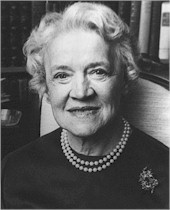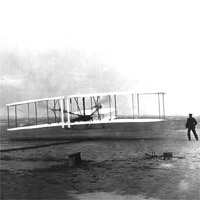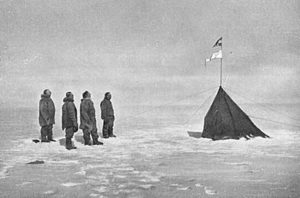James Harold Doolittle (born Alameda, California, 1896; died Pebble Beach, California, September 27, 1993) was an aviator and military hero. As a young man, he was the first person to fly across North America in under a day. During World War II, he led the first aerial raid on five cities in Japan. He also spearheaded the Eighth Air Force for the Normandy invasion.
 Margaret Chase Smith (born Skowhegan, Maine, 1897; died Skowhegan, Maine, May 29, 1995) was the first female to be elected to both the House of Representatives (1940-1949) and to the Senate (1949-1973). Children could learn more about her at: Margaret Chase Smith. They could also find out how the requirements for being a representative differ from those of being a senator.
Margaret Chase Smith (born Skowhegan, Maine, 1897; died Skowhegan, Maine, May 29, 1995) was the first female to be elected to both the House of Representatives (1940-1949) and to the Senate (1949-1973). Children could learn more about her at: Margaret Chase Smith. They could also find out how the requirements for being a representative differ from those of being a senator.
Tycho Brahe (born Scania, then part of Denmark but today part of Sweden, 1546; died Prague, then part of the Holy Roman Empire, October 24, 1601) was an astronomer and alchemist. The telescope had not yet been invented. However, he used the best instruments then available to make great contributions to the field of astronomy. He recorded planetary motions, observed a supernova, and mathematically concluded that comets were farther away from earth than the moon. He was not always correct in his work, but he provided the foundation for other great astronomers. Here is an interesting fact: in a duel (over an astronomical concept) he lost all or part of his nose. After the duel he wore a fake nose made out of metal.



 Margaret Chase Smith (born Skowhegan, Maine, 1897; died Skowhegan, Maine, May 29, 1995) was the first female to be elected to both the House of Representatives (1940-1949) and to the Senate (1949-1973). Children could learn more about her at:
Margaret Chase Smith (born Skowhegan, Maine, 1897; died Skowhegan, Maine, May 29, 1995) was the first female to be elected to both the House of Representatives (1940-1949) and to the Senate (1949-1973). Children could learn more about her at: